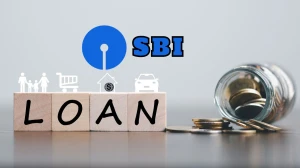
What is a Mortgage Loan Officer? What Does a Mortgage Loan Officer Do?
A mortgage loan officer is a financial professional who facilitates the mortgage application process, helps borrowers understand loan options, and guides them through securing mortgage loans from lenders.
by Kowsalya
Published Jul 31, 2023 | Updated Dec 01, 2023 | 📖 10 min read
On This Page
What is a Mortgage Loan Officer?
A Mortgage Loan Officer is a financial professional employed by a mortgage lender, specializing in assisting individuals with residential home loans. They guide borrowers through the application process, assess financial eligibility, recommend suitable loan options, and ensure the timely submission of required documentation. Acting as advocates and advisors, these professionals play a crucial role in facilitating a smooth mortgage transaction for homebuyers.
What Does a Mortgage Loan Officer Do?
A Mortgage Loan Officer is a crucial intermediary in the process of securing a mortgage loan, specializing in residential home loans. Here's an overview of their key responsibilities:
Advising and Paperwork Generation
- They advise and assist borrowers in completing loan applications, especially for complex and expensive loans like mortgages.
Specialization in Residential Home Loans
- Mortgage loan officers work for mortgage lenders and focus on residential home loans, requiring in-depth knowledge of various loan products.
Financial Analysis
- They analyze applicants' financial situations, including income, credit history, and down payment, to recommend suitable loan programs and interest rates.
Fair Lending Compliance
- Adhering to fair lending laws, they recommend loan programs and interest rates that align with the borrower's budget.
Fee Breakdown and Documentation
- They provide a detailed fee breakdown after the initial application and before closing, ensuring transparency in the lending process. Loan officers must send a loan estimate and closing disclosure to the borrower.
Document Collection
- Loan officers collect necessary documents, such as tax returns or credit explanations, to support the loan request and maximize approval odds.
Negotiation and Expertise
- They assist in negotiating the best mortgage program terms by leveraging their expertise in lending guidelines, closing costs, and interest rates.
Deadline Monitoring
- Throughout the mortgage transaction, loan officers closely monitor deadlines, ensuring a smooth and timely closing for homebuyers.
Collaboration with Real Estate Agents
- They collaborate with real estate agents, providing updates and ensuring effective communication between all parties involved in the home-buying process.
Choice Between Mortgage Broker and Loan Officer
- Explains the difference between mortgage brokers and loan officers, highlighting how a mortgage broker works with multiple lenders, while a loan officer typically works for one lender.
Choosing the Best Loan Officer
- When choosing a Mortgage Loan Officer, gather recommendations, explore online lenders, get referrals from real estate agents, consult housing counselors, consider local banks, and interview multiple officers. For selecting the right type of mortgage, assess your finances, explore various Mortgage loan types such as fixed-rate or adjustable-rate mortgages, FHA, and VA loans, and choose one that aligns with your preferences and long-term plans.
Ensuring Communication and Accessibility
- Advises borrowers to have questions prepared when meeting loan officers and emphasizes the importance of the loan officer's experience, work hours, communication methods, and reasons for choosing a specific company.
Comparison Shopping
- Encourages borrowers to meet with at least three to five different loan officers, citing research showing potential cost savings for those who shop with multiple mortgage lenders.
How to Become a Mortgage Loan Officer?
Becoming a Mortgage Loan Officer (MLO) involves a step-by-step process and a commitment to meeting specific requirements. Here is a detailed guide on how to embark on a career as a Mortgage Loan Officer:
Meet Basic Requirements
- Be at least 18 years old.
- Possess a high school diploma or GED.
- Consider taking math- and finance-based classes to build foundational knowledge.
Complete Pre-Licensure Courses
- The National Mortgage Licensing Service (NMLS) mandates pre-licensure courses, covering federal law and regulations, ethics (including fraud, fair lending, and consumer protection issues), training on lending standards in the non-traditional mortgage product market, and additional instruction on mortgage origination.
- These courses typically take 20 hours to complete.
Research State Licensure Requirements
- Understand your state's guidelines for obtaining Mortgage Loan Officer licensure.
- Pay attention to state-specific topics and fees associated with obtaining the license.
Pass the SAFE MLO Test
- Take and pass the Secure and Fair Enforcement Act (SAFE) MLO test with a minimum score of 75%.
- The exam evaluates knowledge of both federal and state mortgage lending laws.
- A 30-day waiting period is required for retakes, and after three attempts, a 180-day waiting period is imposed.
Fulfill NMLS Requirements
- Register with the NMLS.
- Provide authorization for a credit report, demonstrating a strong credit history.
- Undergo a criminal background check by providing fingerprints.
- Verify the accuracy and completeness of the information provided.
- Disclose any charges from financial regulatory agencies.
- Provide 10 years' worth of financial services employment history.
- Obtain several types of identification information.
NMLS Unique Identifier
- Acquire a unique identifier from the NMLS, a permanent number assigned to every MLO, real estate company, and branch with an NMLS account.
- This identifier is used for tracking companies and licensees and is included in all advertisements for mortgage origination services.
Maintain Active Licensure
- Keep the license active by meeting requirements such as updating information promptly.
- Notify the NMLS of any changes, such as starting to work for a new company.
- Stay informed about deadlines, fees, checklists, license renewal, and updating MLO information.
Continue Education
- Complete eight hours of NMLS-approved continuing coursework annually for license renewal.
- Coursework should cover regulations and federal law, ethics (fraud, fair lending, and consumer protection), training on lending standards for non-traditional mortgage products, and state-specific courses related to mortgage origination services.
Gain Experience
- Seek employment at an established mortgage lending company, bank, or credit union to gain practical experience.
- Work independently once you have met education and licensure requirements.
Read More >> Types of Conventional Mortgage Loans
Mortgage Loan Officer Requirements
Becoming a Mortgage Loan Officer (MLO) involves a structured process and adherence to specific requirements. Here's a detailed overview:
Personal Requirements
- Must be 18 years of age.
- Submission of fingerprints to the FBI and passing a criminal background check. Felonies committed in the past seven years or financial crimes may disqualify an applicant.
- Registration with the National Mortgage Licensing System (NMLS).
State-Required Mortgage Education
- Completion of state-required mortgage education, which varies but typically involves at least 20 hours of pre-licensure education.
Passing the SAFE MLO Test
- Successful completion of the SAFE MLO test, a challenging exam with 120 multiple-choice questions covering federal mortgage-related laws, uniform state content, general mortgage knowledge, mortgage loan origination activities, and ethics.
Credit Report Submission
- Submission of a credit report, with low scores not necessarily disqualifying, but part of the overall assessment.
Steps to Obtain an MLO License
- Registration with NMLS.
- Researching and meeting specific state pre-licensure education requirements.
- Choosing an education provider and completing all required coursework, passing each course's final exam.
- Passing the SAFE MLO licensing exam.
- Applying for a license, submitting a credit report, and obtaining a surety bond upon employment.
- Getting hired by a sponsoring broker or financial institution.
Mortgage Pre-Licensure Education
- Understanding that pre-licensure education, typically around 20 hours, is mandatory and varies slightly from state to state. Details can be found on the NMLS website.
Exam Preparation
- Acknowledging the difficulty of the SAFE MLO Test and the recommendation for candidates to undertake an exam prep course. The exam covers federal laws, state content, general mortgage knowledge, loan origination activities, and ethics.
NMLS Requirements
- Compliance with NMLS requirements, including obtaining a unique identifier, paying fees for registration and renewal, and securing sponsorship reported to NMLS when entering a business relationship with a lender.
Costs Involved
- Awareness that becoming a licensed Mortgage Loan Officer involves costs such as state and federal registration fees, exam fees, and education costs. For instance, taking the SAFE MLO Test costs $110, and the background check and credit report have associated fees.
SAFE Act Compliance
- Understanding the stipulations of the SAFE Act, enacted after the 2008 financial crisis, which includes registering with NMLS, completing pre-licensure education, passing the SAFE MLO Test, submitting fingerprints for a background check, and undergoing a credit check.
State-Specific Variations
- Acknowledging that while the SAFE Act sets a national standard, some states may have additional requirements, such as varying hours of pre-licensure education and specific electives.
Continuing Education
- Recognizing the annual Continuing Education requirement to maintain licensure, which varies by state, typically requiring 8-9 hours, and involves associated costs.
Looking for the ideal Mortgage to finance your dream home? MarketsHost has a diverse range of options tailored just for you. Our platform simplifies the process, making it easier for you to find the right fit.
How to Choose the Best Mortgage Loan Officer?
Choosing the best mortgage loan officer is a crucial step in the home-buying process, as they play a vital role in helping you secure the right mortgage for your needs. Here's a detailed guide on how to select the best mortgage loan officer:
Seek Recommendations from Trusted Sources
- Start by asking friends, family members, or colleagues who have recently purchased a home for recommendations. Personal referrals can provide valuable insights into the loan officer's reliability and professionalism.
Online Lenders and Resources
- Explore online lenders and their websites to familiarize yourself with mortgage-related information. Many online lenders offer user-friendly interfaces and online mortgage application options.
Consult Your Real Estate Agent
- Your real estate agent often has a network of preferred loan officers with a track record of closing deals successfully. They may recommend loan officers who can help you navigate the financing process seamlessly.
HUD-Certified Housing Counselors
- Visit the U.S. Department of Housing and Urban Development's (HUD) website to find HUD-certified housing counselors in your area. These counselors can provide valuable advice and recommend reputable local lenders.
Local Banks
- Visit your local banks, as many of them offer mortgage services. Some banks may even offer special discounts or lower interest rates if you have a substantial account balance with them.
Mortgage Banks and Brokers
- Conduct an online search for "mortgage banks near me" or "mortgage brokers in my area" to find local mortgage companies and loan officers. Mortgage brokers may have access to a wider range of loan options.
Prepare Questions for Loan Officers
- When meeting with potential loan officers, ask questions to assess their experience and suitability:
- Inquire about their experience, especially if you have unique financial circumstances.
- Ask about their work hours to ensure accessibility when you need it.
- Discuss preferred communication methods and responsiveness.
- Inquire about any unique features or programs their company offers.
Meet Multiple Loan Officers
- It's advisable to meet with at least three to five different loan officers. This allows you to compare their expertise, communication style, and the services offered.
- Building a good rapport with your loan officer is essential since you'll work closely with them throughout the mortgage process.
Review Credentials and Reputation
- Check the loan officer's credentials, including any certifications or licenses. Look for online reviews and testimonials to gauge their reputation and customer satisfaction.
Compare Loan Offers
- After meeting with different loan officers, compare the loan offers they provide, including interest rates, fees, and terms. Choose the offer that best suits your financial goals and needs.
Trust Your Instincts
- Ultimately, trust your instincts when selecting a loan officer. You should feel comfortable and confident in their ability to guide you through the mortgage process.
What is a Mortgage Loan Officer - FAQs
1. What is a Mortgage Loan Officer?
A Mortgage Loan Officer is a financial professional who specializes in residential home loans, assisting individuals through the mortgage application process, evaluating financial eligibility, and recommending suitable loan options.
2. What does a Mortgage Loan Officer do?
Mortgage Loan Officers advise and assist borrowers in completing loan applications, analyze financial situations, ensure fair lending compliance, generate detailed fee breakdowns, collect required documents, negotiate mortgage terms, monitor deadlines, and collaborate with real estate agents.
3. How does a mortgage loan officer differ from a mortgage broker?
While both work in the mortgage industry, a mortgage loan officer typically represents a specific lender and offers the lender's mortgage products, while a mortgage broker works with multiple lenders to find the best loan options for clients.
4. What qualifications are required to become a mortgage loan officer?
To become a mortgage loan officer, one typically needs to meet basic age and education requirements, complete pre-licensure courses, and obtain a valid mortgage origination license from the state.
5. How does a mortgage loan officer benefit borrowers?
A mortgage loan officer helps borrowers navigate the complex mortgage process, provides expert guidance on loan options, and assists in securing mortgage loans with favorable terms, ultimately helping borrowers achieve their homeownership goals.




